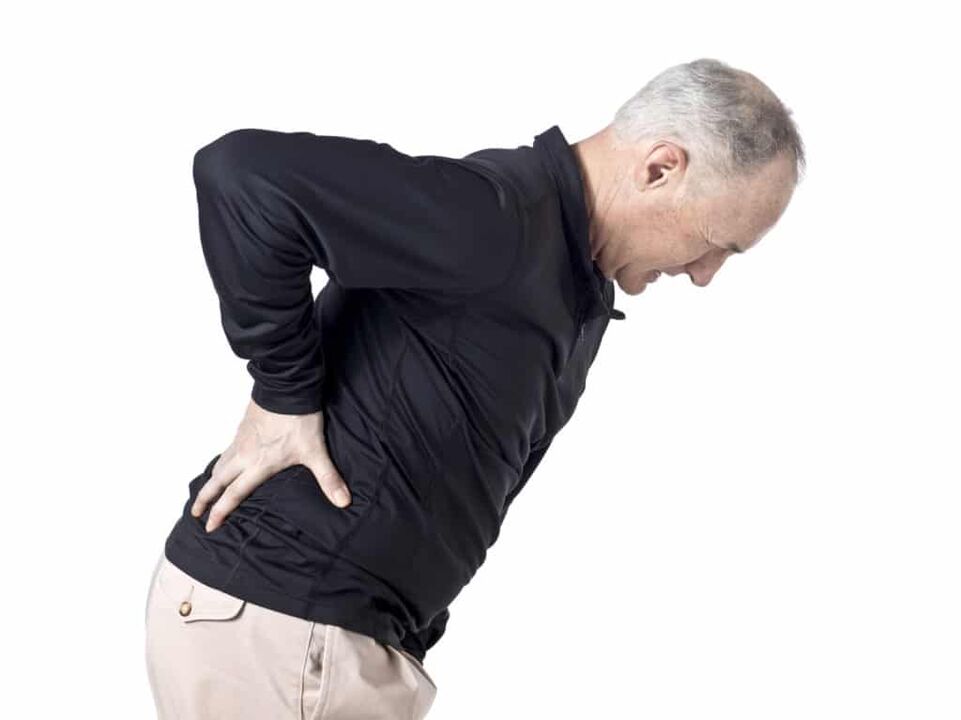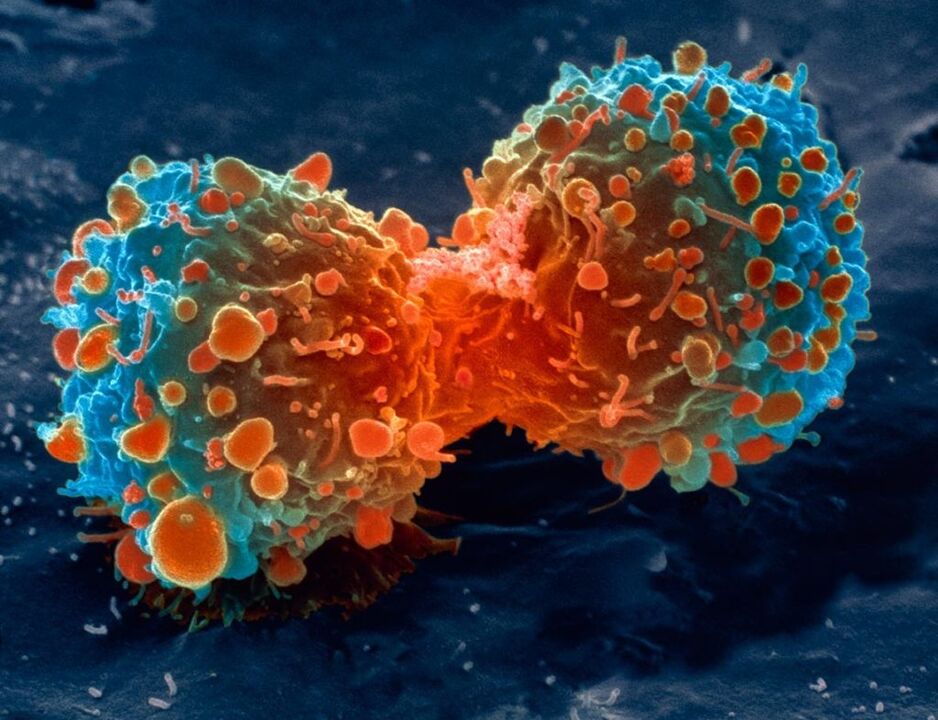There are different stages of prostatitis. They differ in clinical symptoms and features of the course. The most effective is the treatment of the early stages of the development of prostatitis. At this stage, the disease has not had time to greatly affect the activity of the genitourinary system. The later a man with prostatitis turns to his doctor for help, the less likely he is to make a full recovery.
What is prostatic disease
Prostatitis is an inflammatory process that has occurred in the prostate gland. More than half of the elderly male population has this disease. Doctors distinguish several forms of the disease, each progressing in its own way. When making a diagnosis, the urologist specifies the type of prostatitis found in the patient. Inflammation can be caused by bacteria or not by bacteria. Both pathologies negatively affect the functioning of the gland and nearby organs.
Pathological processes have 2 types of flow:
- Spicy;
- Chronic.
The initial symptoms of acute prostatitis appear from the first days of the disease. Their severity increases if a man does not try to deal with the inflammation. The chronic process is characterized by the absence of obvious unpleasant symptoms. Therefore, this form of prostatitis is often detected during routine examinations by a urologist.

Acute prostatitis in the early stages gives obvious symptoms, while chronic prostatitis does not show any outward signs.
Stages of chronic disease
Chronic prostatitis is divided into several stages, which follow one another if men do not try to cope with the disease. It can be latent for several years. In this case, the pathology worsens periodically. Remission and relapse of the disease gradually replace each other.
It depends only on the actions of the patient that how long he will treat the disease, what stage the disease will reach and whether he can make a full recovery.
1 stage
The initial stage of the prostate is considered the safest for health. That is why doctors recommend starting treatment at this stage. But the difficulty lies in the fact that in the beginning the disease did not cause much discomfort. A man does not even always know that he is sick. If for some reason the patient cannot overcome the pathological process in the prostate, it will move on to a more difficult stage. And so it will continue until the infectious agent is stopped.
Grade 1 prostatitis is characterized by symptoms that will be mild:
- Body temperature rises to 38 degrees. After a while, it can rise to 40 degrees;
- Severe pain in the hip joint;
- There is discomfort during bowel movements;
- Members become more sluggish;
- During urination, you may notice colorless mucus;
- Pain occurs when urinating;
- The urethra is getting narrower, so you have to strain to empty your bladder;
- At night, the frequent urge to go to the bathroom begins to bother;
- The duration of sexual intercourse becomes shorter.
All of these signs are good reasons to see a specialist. They will annoy a man for up to 3 years. It is during this time that the course of the first stage of the disease is usually observed.
Symptoms of prostatitis will come and go, because at this stage the disease manifests itself in waves. For one man, it seemed that the disease was in remission, but after a while she betrayed herself again.
Very often, patients do not end up in the early stages of prostatitis. Because of this, the disease becomes chronic. It is very difficult to deal with this form of pathology. The treatment will take a long time and require a large investment. At the same time, there is no guarantee that the disease will go into remission upon completion of the course of treatment.
A urologist can detect the early stages of prostatitis in a patient if he undergoes a series of diagnostic procedures. The disease is detected through studies such as:
- Rectal palpation;
- Collection of secretions and sperm;
- General analysis of urine and blood;
- Sperm analysis;
- Prostate ultrasound.
Analysis of the research results will allow the specialist to identify the disease and its causes. If prostatitis becomes infectious, then the man will be recommended to take antibiotics and other drugs that help restore the affected prostate tissue and normalize its functioning. A non-infectious form of inflammation also requires drug treatment. Such treatment will be based on immunomodulatory drugs, functional foods and rectal suppositories with anti-inflammatory effect.
If the early stages of the disease progress in a non-aggravating form, the patient will be prescribed additional physical therapy along with diet.

In the early stages, prostatitis responds well to treatment.
2 stages
Grade 2 prostatitis is accompanied by a temporary weakening of symptoms. Many men consider this condition reversible. They delay doctor visits or stop paying due attention to treatment. But the reduction of the inflammatory process with such a diagnosis is a bad sign. While the early stages of the disease were ongoing, there was an increase in the size of the prostate gland due to the active division of its cells. As a result, scars form on the walls. The ruptured blood vessels lead to an interruption of the blood supply to the prostate gland.
The second stage of prostatitis is often accompanied by the following symptoms:
- Violation of circadian rhythms;
- Foolproof;
- Pain when urinating;
- Heart failure;
- Exacerbation of sciatica;
- Disappearance of orgasm;
- Lack of sexual desire.
At this stage of prostatitis in men, it is difficult to accurately determine the specific localization of the pain syndrome. Initially, pain is felt at the site of the prostate. After it has spread to all areas of the small pelvis.
Patients with stage 2 prostatitis are recommended to take immunostimulating drugs and participate in physiotherapeutic procedures. In order for the situation not to become more complicated, they need to avoid hypothermia, give up bad habits and normalize nutrition.

It is very important to have a healthy lifestyle
3 stages
The third stage of the development of inflammation in the prostate brings the most problems. In this case, a man was diagnosed with a chronic form of prostatitis. At this stage, there is a serious change in the tissues of the prostate gland. They start to die quickly. The scars that form in the previous stages put a lot of pressure on the bladder. This leads to the development of urinary retention, which is an extremely dangerous complication.
Grade 3 prostatitis develops, leading to the appearance of pathological changes in the kidneys and bladder. The danger lies in the fact that they are irreversible. At this stage, men often complain of sciatica pain.
The last stage of the development of the disease has the following symptoms:
- Frequent urge to urinate;
- Severe pain when urinating;
- Weak urine stream;
- Cut in the area of the kidney;
- Lack of feeling that the bladder is completely empty after going to the toilet.
The final stage of chronic prostatitis is considered the most dangerous. At this stage, dead cells are replaced by connective tissue. This change leads to a decrease in the size of the prostate gland and narrowing of the urinary tract. Due to the fact that the system does not work properly, a man develops cyst formation. He also developed impotence.
Since in the final stages of the disease its symptoms are very pronounced, the patient's life is complicated. The pain kept haunting him day and night. Usually, the first time men go to a urologist precisely because of such obvious symptoms of prostatitis. However, since irreversible processes have occurred in the gland at this time, doctors do not guarantee the elimination of pathology even if the patient meets all their requirements. It is difficult for them to predict how inflammation will work at a certain stage of development.
If the case is severe and antibiotics do not provide significant remission, the patient will be referred to surgical removal of part or all of the prostate.

In stage 3, the pain becomes severe and the changes in the organs become irreversible.
Stages of acute illness
With acute inflammation in the glandular organ, prostatitis begins. It gradually escalated. Prostate affected by infection safely develops in it with a weakened immune system. Chronic prostatitis is observed in those who cannot cope with the acute form of pathology. In this case, the man will not feel special symptoms of the disease until the disease is in the acute stage.
Prostatitis caused by an infectious agent, manifests itself from the first days of the disease. Therefore, this form of pathology is diagnosed earlier than chronic. Acute prostatitis is characterized by slightly different stages of development. Doctors distinguish four degrees of the disease, these levels follow one another.
catarrhal stage
At this stage, the inflammatory process in the prostate begins. It spreads in the ductal tissues of the glandular lobes. There is swelling of the prostate gland, which continues to progress. At this stage, the man has no discharge of pus, which could be a sign of an infection in the gland. He will be disturbed by other symptoms:
- Frequent urge to go to the toilet;
- Painful urination;
- General weakness in the body;
- Psycho-emotional state changes;
- lethargy;
- Irritability.
Another distinguishing feature of acute prostatitis in development stage 1 is enlargement of the prostate gland. Although this symptom is also characteristic of the chronic course of the pathology. The doctor will be able to notice this feature when palpating the problem area. Special analyzes allow confirmation of the therapist's fears. He necessarily refers the patient to the supply of prostate secretions in order to study its composition. With prostatitis, an increased number of white blood cells will be found in the fluid. Also in the sample, the doctor will detect impurities of pus and mucus.
Treat the early stages of acute prostatitis by taking a class of drugs that suppress inflammation and reduce the severity of the main symptoms of the disease.
Massage with such a pathological process is strictly prohibited, like many other similar physiotherapeutic procedures.
On average, the treatment time for early prostatitis takes about 2 weeks. During this time, the patient recovered completely. The positive result of therapy is due to the fact that it was started before the time when the pathology was still uncontrolled to lead to the development of irreversible processes in the organs of the biological system. sex.
Follicular phase
With the development of this stage of prostatitis, swelling spreads to the follicles and secretory channels of the prostate gland. Its structures begin to compress adjacent tissues, which causes severe deterioration. The symptoms of the disease intensify and become more pronounced and noticeable. In this condition, men complain of the following signs of instability:
- Body temperature rises to 38 degrees and does not decrease;
- lethargy;
- Occurrence of pain in the groin area;
- Pain that radiates down to the genitals, anal area, and hips;
- painful urination;
- Pain at the tip of the penis;
- Having a bowel movement becomes more difficult;
- The excretion of a minimal amount of urine.
When probing the problem area, you may discover an asymmetrical increase in prostate tissue. While checking the results of the urinalysis, the doctor will detect the presence of an excessive amount of pus and white blood cells in the sample.
It is very important to start urgent treatment of the follicular phase of acute prostatitis, otherwise a malignant process may develop in the structures of glandular organs.

If therapy is ignored, there is a risk of developing cancer
Parenchymal stage
Prostate tissue is constantly damaged. As a result, a large number of small pustules form in them. The urinary tract is further compressed. The result is acute urinary retention. Other symptoms of the parenchymal phase are the following conditions:
- Painful defecation;
- Raise body temperature to 39 degrees or more;
- Constant feeling of intense thirst;
- Loss of appetite;
- Severe weakness;
- Chronic fatigue;
- Difficulty urinating;
- Severe pain in the pelvis, anus, and lower back;
- Flatulence and constipation.
Abnormal mucus impurities begin to appear in the stool, due to inflammation affecting the intestines. The gland becomes quite large, and its contours are blurred.
Stage of abscess formation
This stage of acute prostatitis is accompanied by a number of painful symptoms that make it impossible for a man to lead a full life. They are more obvious than in the early stages of the inflammatory process. At this stage, the small pustules coalesce into an intact mass. Masses of pus quickly accumulate inside it. When it gets too big, it explodes. As a result, the accumulated pus drains out through the urethra. At the stage of the abscess, the patient is tormented by the following symptoms:
- severe unrest;
- Increases body temperature up to 40 degrees;
- Passive to any action;
- Severe pain in the anus and genitals;
- Difficulty defecating and urinating.
If a man in this condition is not adequately treated, he can die. It is very important to remove the abscess so that the patient feels more comfortable. Only then do the main signs of the disease begin to subside.
Complications
The sooner prostatitis is treated, the less harmful the inflammatory process will be to the body. That is why it is best to deal with the disease in its early stages. But not all men adhere to this recommendation, as many hope that the disease will go away on its own. Therefore, the disease progresses more seriously and leads to unpleasant complications. Ignoring the help of a specialist, a person faces the following consequences of untreated prostatitis:
- The appearance of various inflammatory processes in the organs of the genitourinary system;
- Decreased sex drive;
- Psychological disorders;
- Dry;
- Impotent.
It is not uncommon for men with prostatitis to have normal erections. Because of this, the patient's sexual activity is significantly reduced. In some cases, failure to ejaculate is considered a complication. A man's penis can drastically decrease. If such deviations are detected, it is necessary to visit a specialist to find out the nature of the violation and find a way to eliminate it.
Do not forget that the inflammatory process can actively spread to neighboring tissues and organs. That is why, against prostatitis, men also develop cystitis and urethritis. These diseases lead to a violation of the outflow of urine. The presence of chronic urinary incontinence cannot be ruled out.
Impotence is considered by men to be one of the most severe complications of acute or chronic prostatitis. With such a deviation, the possibility of excitation disappears. This is due to inflammation, which interferes with tissue nutrition. Edema does not allow the cavernous body to fill with blood. Medicine has learned to treat this complication with long-term drug therapy. However, not all patients after completing such a course are satisfied with the results.
It is prostatitis known as the main cause of grade 1 infertility. In this case, a variant of the disease is considered, in which the composition of the seminal fluid changes. Secretly changes its acidity and viscosity. All these deviations were discovered during the study of a sperm sample, which was sent for analysis.
With infertility problems, men should contact a urologist. It will help you choose the best treatment.
If prostatitis is severe, it will lead to second-degree infertility appearing. This condition cannot be treated.
A man's mental-emotional mood is greatly affected by an inflamed prostate gland. Frequent failures in the intimate sphere worry him. Against this background, indentations appear, which aggravate the general condition of the patient.
More than 30% of patients diagnosed with prostatitis face psycho-emotional experiences. Psychologists help them restore a man's sex drive, which has been reduced by stress.

Impotence and infertility are common complications of the disease
Cure chronic prostatitis
If treatment for prostatitis is started, the patient may be in remission. This is the name of the condition in which the symptoms of the disease weaken significantly or they disappear completely. Prostatitis in remission is resolved in most patients who have completed a full course of treatment. This period is different for each person. If a man does not comply with the recommendations of the doctor, then after a while there will be an exacerbation of prostatitis. And then the patient will have to be treated again.
Types
Remission with prostatitis can be complete and incomplete. In the first case, after adequate treatment, the man is no longer bothered by absolutely all the symptoms of the pathology. He forgot about them for a long time. Incomplete remission usually lasts no more than 3 months. During this time, the patient may complain of minor symptoms characteristic of prostatitis. For example, many people continue to experience painful urination and pelvic discomfort.
Period
Even experienced doctors sometimes find it difficult to predict how long remission will last for a particular person who has been treated for prostatitis. This indicator is individual. The duration of this phase directly depends on several factors:
- Pathogens;
- General condition of the body;
- Quality of treatment;
- Severity of the disease;
- Disease stage.
It also takes into account how conscientious the patient is in following the recommendations of the attending physician, regarding the prevention of recurrence of prostatitis.
If a man meets all the requirements of a specialist and takes care of his health carefully, his remission can last several decades. Sometimes the disease goes away completely.
Forecast
If a patient who has been treated for chronic prostatitis begins to lead a healthy lifestyle, get control tests and see a doctor regularly, and take medication to prevent the recurrence of prostatitis. patient will recover well. prognosis. In this case, the disease may never bother the patient again.
If a man still has prostatitis, he should start treatment right away. For this you need to contact a specialist. An examination of the entire genitourinary system will help the urologist choose the appropriate treatment, terminate the disease and eliminate the complications that have arisen.
































